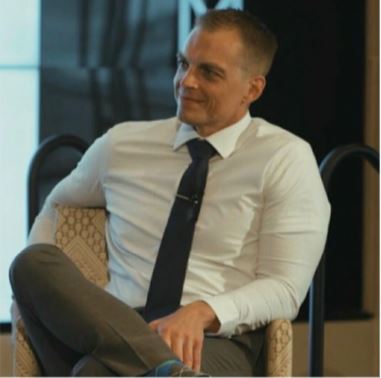The end of the year brings with it numerous ways for us to spend our money. Virtual Black Friday deals and Christmas music and decorations already being displayed at the store remind us that the Christmas season has become a time when we are urged to consume.
It seems to me that, for Christians, particularly Christians in the United States, Christmas can quickly become a time when we follow the example of Martha rather than Mary. In the hustle and bustle that inevitably accompanies purchasing gifts, attending events, and sending out year-end updates via Christmas cards, sitting at the feet of Jesus can begin to seem like a luxury we simply can’t afford. Yet, sitting at Jesus’ feet is the “good portion” we should be zealous to pursue.
So, as we enter this holiday season, how can we make discipleship a priority rather than an afterthought? How can we do more than squeeze in time to delight in God’s instruction and meditate on it day and night? What might it look like to clear our minds of the many pseudo-obligations of the holiday season so that we can enjoy being in God’s presence?
First, start prioritizing God early. In his book entitled Improvisation: The Drama of Christian Ethics, Samuel Wells writes,
The moral life should not be experienced as an agony of impossible choice.Instead, it should be a matter of habit and instinct. Learning to live well is about gaining the right habits and instincts, rather than making the right choices. If one has right assumptions and instincts and habits, many things others might experience as crises of choice will pass without one being aware of them.”
The point is not that life should be easy for Christians or that our choices don’t matter. Instead, the point is that if we wait for the busiest, most pressurized moments to try to do the right thing, it will be that much more difficult to choose the right thing. Make it easy for yourself to choose Jesus by beginning to prioritize him today. Don’t wait. If it helps, you can use the Advent (Plus) Bible reading plan here to begin cultivating a time of study and prayer today.
Second, give more than gifts. I’m a realist, so I don’t think it is really feasible to stop giving gifts at Christmas time; however, I do think it is possible to offer more. Telling people why you are happy they are in your life, sending a kind note to someone you love, or sharing the gospel with an unbelieving friend or co-worker are all gifts of a sort. They involve giving yourself away to some degree and, thus, point to the God we serve who sent his Son to die for us.
Finally, establish new traditions. The holidays can tend to overwhelm us and keep us busy. They may take us away from our local congregation due to travel. They can (and often do) disrupt our normal rhythms. Establishing a tradition that you do with your family or on your own that isn’t dependent on location can be a good way to reinforce the true meaning of Christmas and to remind you that Christ has come. It might be something as simple as reading the Christmas story in Luke, memorizing Philippians 2, or saying a set of prayers related to Advent. Keeping a simple tradition that places Jesus at the forefront of our thoughts is a powerful way for Christians to resist temptation of making Christmas about trees, lights, and presents under the tree.
My hope is that as we move through this Advent season that God’s people will shine brightly in a dark world proclaiming the gospel of Jesus Christ and showing forth the joy and peace that can only come through knowing Jesus.
This is an updated edition of a post originally published on Moody Center.
Featured Image by Pezibear from Pixabay



















